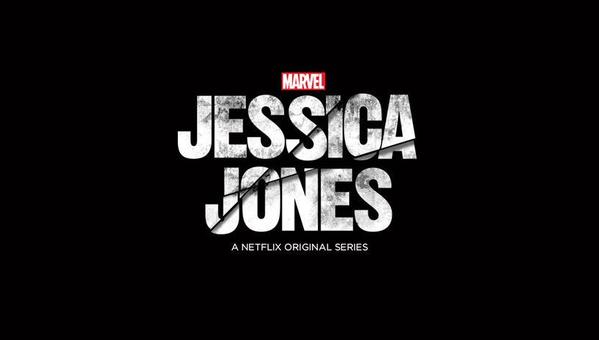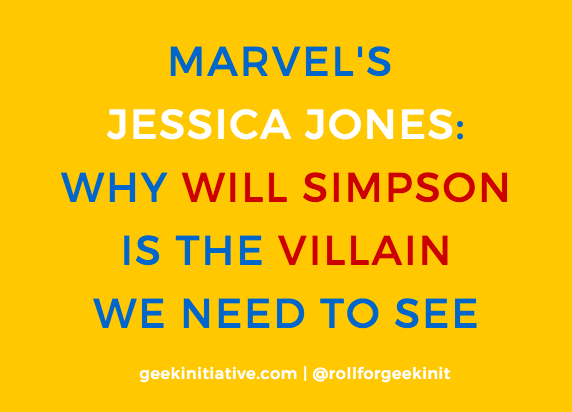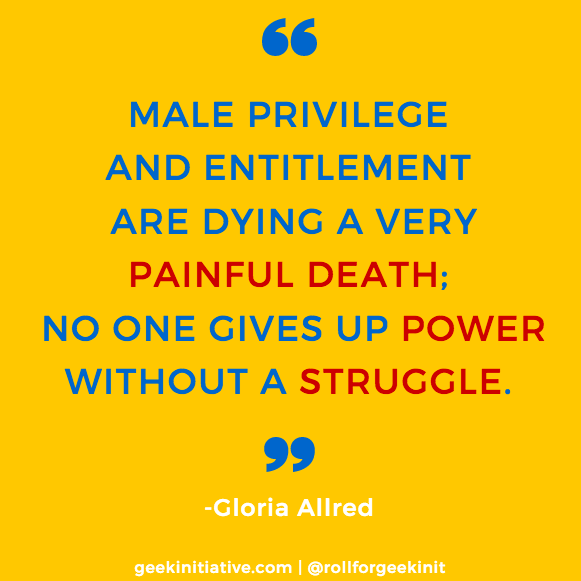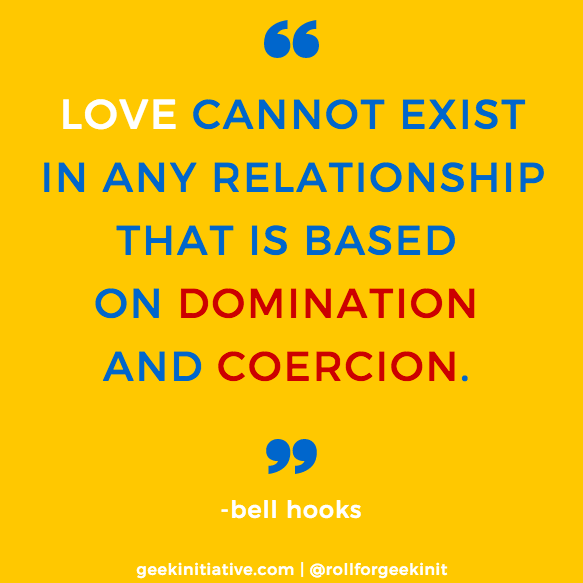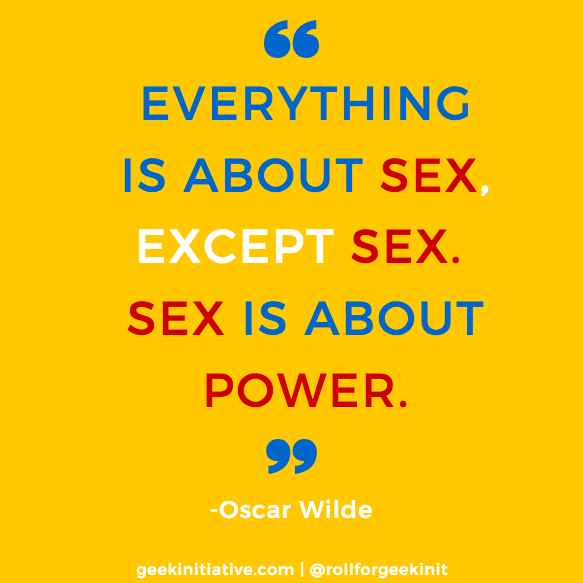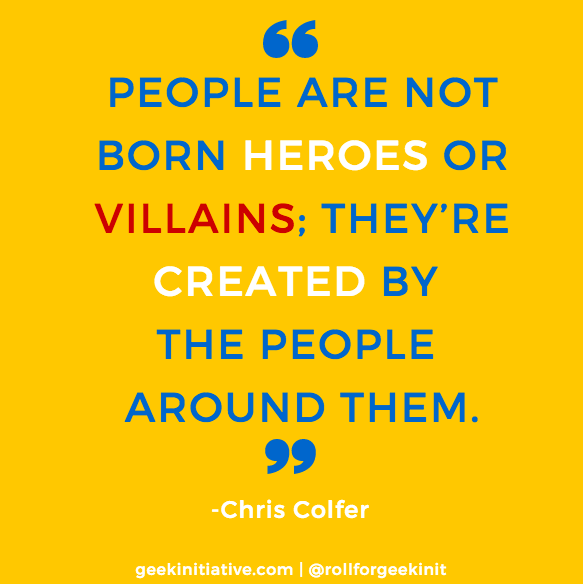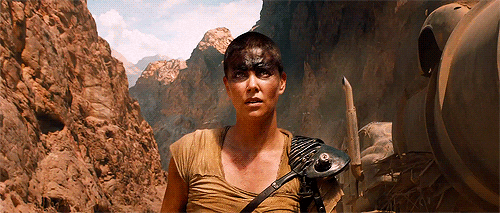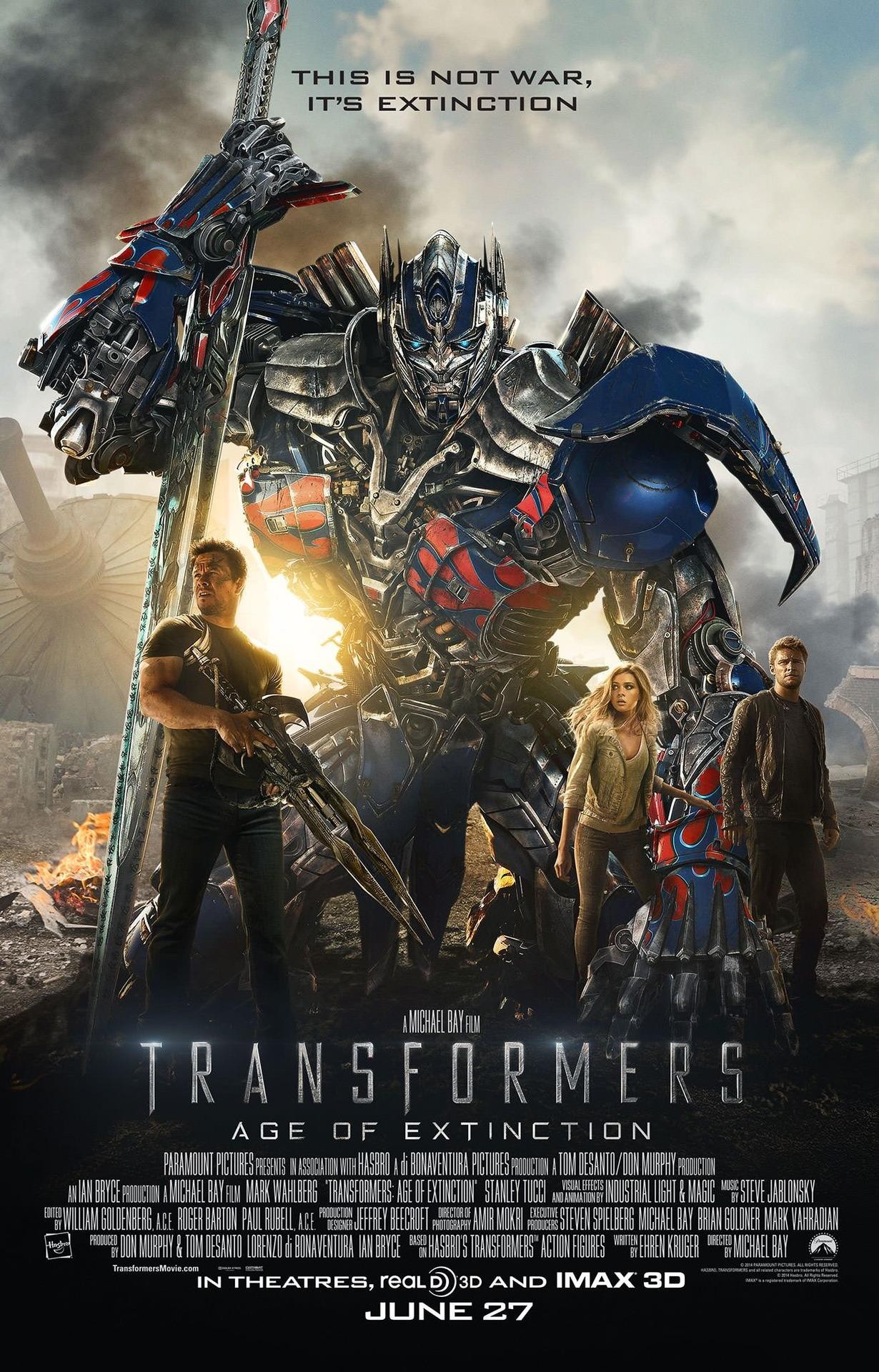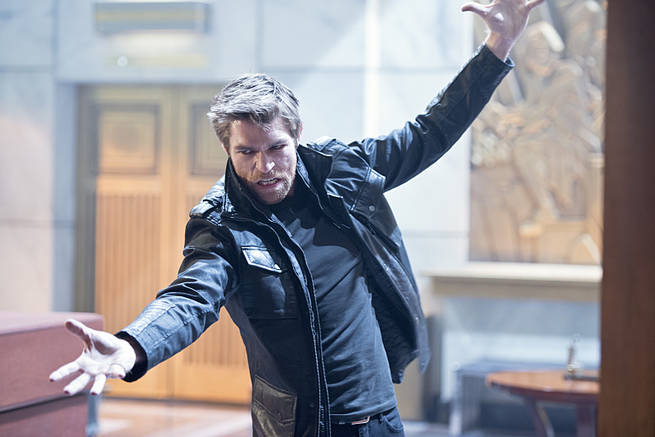In “Jessica Jones,” Sgt. Will Simpson (played by Wil Traval) represents the reality of what many Americans achieve in pursuit of altruistic ideals. Where Captain America (Chris Evans) represents Constitutional ideals and a tolerant but tough narrative that changes with time, Simpson is the American ideal perverted and rushed.
And for that reason, America needs to see how he goes bad.
Let’s examine this character in more detail.
Note: “Jessica Jones” Season 1 spoilers ahead.
Some fans are pretty disappointed over the choice to use this particular obscure character. However, Simpson is a vital villain for an American audience to see and understand.
When we first meet Simpson, he’s a character manipulated by Kilgrave. This gains him sympathy once he is freed: he even earns the trust of Trish Walker (Rachael Taylor).
As a viewer, I really liked Simpson as well, especially since he reminded me so much of Captain America. His obvious intention to accomplish the mission underscores his protective nature and his look. From haircut to biceps, he retains a serious physical similarity to supersoldier Steve Rogers (Chris Evans).
False Captain America
Thematic elements also further this comparison. There are American flags wherever he goes. He’s a veteran. In Season 1, Episode 5 of “Jessica Jones,” a little boy in a Captain America costume runs right by Simpson as he walks through the park.
And what happens as this character develops is in line with the theme of the show: manipulation, betrayal, and disgust. That’s what Trish expresses when he hurts her once he’s hopped up on red pills.
Toxic Masculinity
Simpson, of course, wants back in the program; back in the club, some continuation or variant of the program that produced Captain America. From the character’s introduction, we see his old-fashioned ways present in Hell’s Kitchen. This isn’t Steve and Peggy, though – it’s the continual, eye-roll inducing ‘I asked you not to do this because I told you I can do it myself’ situation women encounter every day.
Most of the male characters in “Jessica Jones” are clear examples of how society fails men when it does not treat the sexes equally. They are made to feel like they have to protect and provide instead of nurture and support, so when capable woman step up, what allowance does society provide for them?
You see it often in feminist groups: “cry me some cis white male tears.” And it’s warranted, because that group of people often has privilege in our society. But what we often fail to point out is how a lack of equality fails men and provides them with no roles society considers acceptable, causing them to harm women and society in turn. Giving them no place perpetuates this cycle.
And then what happens? Violence, violence, violence. And in a world of superheroes, a reimagined version of Nuke. Abused by Kilgrave, he becomes the abuser with a pill-sized dose of ‘strength’ and ‘masculinity.’
A Man Who Learns
Jessica sees value in Will’s tactical spec ops background. When Jessica and Trish tell Simpson to shut up, he listens. While Simpson’s white knighting is at first annoying, his intensions and ability to shut up, listen, and apologize is admirable – until he starts popping the pills.
The combative dialogue and Simpson’s learning process is realistic. Hearing it play out is extremely affirming and validating. How long does it takes someone with privilege to learn to listen and to apologize for talking over someone else? Those learned behaviors can take years.
And through all of it, there’s the Captain America comparison. Can most men really be like that? Should we hold them to such an ideal? And what happens when we don’t?
A Destructive and Abusive Relationship Pattern
Throughout the series, several characters learn to back off of Trish, another extremely relatable character. Trish has reinvented a role that society thrust upon her with the help of an overbearing and abusive mother: a communicator and entertainer with a false smile.
Now a successful radio show host, she’s confronted with a new boyfriend who talks over her. Jessica learns that Trish can fight her own battles and will call for help when she needs it. And if Simpson wants a shot at continuing his relationship with her, he’s going to have to learn it, too.
But it doesn’t look like plot is going that way.
Relationship with Trish
Though Jessica protects Trish, Trish begins her journey of self-defense and independence very early in the series. This is realistic for a woman of her age: she’s spent most of her life dealing with abusive patterns and we’re meeting her at a point of change.
And Will Simpson meets her, too.
And though he’s endearing, there’s something not right about the way he first convinces her to open the door. His dogged persistence sits on the line between admirable and creepy. But she said no, I tell myself. How f–ked up is it that I think this is admirable behavior?
Will and Trish: Sex and Power
Then they get into a relationship and have sexual encounters. A common complaint of this series is that the sex is gratuitous. (Have you seen “Game of Thrones” at all? Because this isn’t that show.) The relationships in general and the sex scenes in particular are about a primary expression of the power dynamic of the couple in question.
Black Men and Other Examples of Toxic Masculinity
Toxic masculinity and hyper-masculinity are pervasive among men in the show, including black men. And here, it threatens to serve a very negative stereotype about violence and abuse. Characters like Luke Cage (Mike Coulter) suffer not only from the toxic masculinity and enforced gender roles that encourage them to play into the tough guy personae, but the omnipresent fear of hurting others; the other side that Bruce Banner sees in the MCU with the added burden of a negative and pervasive stereotype.
Luke’s difficulties run well beyond the loss of his wife and the complications coming with his unbreakable skin. Luke and Jessica don’t sit around and have tea accompanied by a poignant discussion on racism and sexism and the way people judge them, but expressing their pain and loneliness together makes it natural (and dare I say it, palatable for an audience including people who may not identify as ‘progressive’).
Luke’s skin – a reason people discriminate against him – is the source of his durability. But his strength and hesitation are realistic and unaddressed stereotypes. He is genuinely hurt when he finds out what Jessica’s been hiding; hurt because she slept with him and used him. Hopefully the show will do more to address this anger and abuse…the fact that Jessica, Trish, Simpson and others manipulate and treat others poorly as a result of Kilgrave’s actions and abuse.
Will Simpson is That White Guy – and Why We Need to See Him
We’ve all seen that white guy who could have been awesome but became a gamergating troll who isn’t deliberatively manipulative like Kilgrave, but still does damage. He wants to do the right thing at first. He tries. He shows progress: and then he takes an easier path, because when society already shuns you for being a nerd and you can’t get anything (including the woman or girl you feel entitled to possess), society and feminism have no place for your anger. Other people have it worse and you’re the oppressor.
I see it every day on my Facebook feed, and it’s true.
What’s a guy like this to do? He wants respect from the women and men in his lives; maybe he strives to let go of his entitlement. But even if he embraces the fact that his privilege is real, there aren’t really sincere, progressive support groups to help this guy find his way in society because everyone’s so busy pointing out that he already has so many advantages.
And hey, this guy might make 20% more than me for doing the same job just because he’s a man, so I’m not really obligated to help him out.
[Tweet “How does the hero who hunts terrorists become the terrorist himself?”]
Salon’s Chauncey DeVega says it best in “Dear White America: Your Toxic Masculinity is Killing You“:
Toxic white masculinity defaults to violence as a means of maintaining social and political control. It clings to guns as a symbol of “real” male identity. It fears women as equals; it lashes out at non-whites who are somehow “stealing” white men’s jobs and power. Toxic white masculinity sees “liberals,” “progressives,” “social justice,” and “feminism” as enemies — out of a fear that “white masculinity” will somehow be made obsolete or extinct. The dream worlds and paranoid fantasies of angry white men are distractions that look to some type of Other as the preeminent threat to America’s safety and security. The reality is of course, very different.
In reality, right-wing domestic terrorists and mass shooters are the number one threat to America’s safety and security since September 11, 2001.
Sounds like a fairly accurate description of Simpson’s descent into Nuke-dom so far.
I’m not saying anyone’s obligated to hold the hand of the privileged, but gender roles also confine men. Where do they have to go when they’re constantly made to feel not good enough? Add on years of service to their country (just like Will Simpson) in cultures and subcultures that aggressively embrace toxic masculinity and hyper-masculinity, what’s there to do?
In this way, he’s becoming a complex villain; one whose motivations are wrong but entirely understandable – and most eerily, visible in those around us.
Simpson’s desire to protect is part of who he is. Whether enhanced by pills or left alone, it’s there – and conditioned by a lifetime in American society and military subculture. The thing is, as a police officer, he’s to serve and protect – the key difference between Simpson and Rogers. Simpson fails to serve.
Lack of Control, Choice, and Agency
Most characters in “Jessica Jones” experience a lack of of choice in the first season. It’s a main theme of the show and it’s dark.
For Simpson, this manifests in his re-entry to ‘the program.’ Powerless in a hospital bed, Simpson wants some control over his own life; plus he feels the need to protect others. And even though he’s a tough guy with authority and privilege, it’s easy to see how he feels a lack of choice in stark contrast with his pervious abilities.
He’s a jerk – but he’s also a victim of Kilgrave.
Taking the red pills gives him a sense of control over the situation. Like the comparison to Captain America, though, it’s a sham. The red pills cause him to lose control and hurt people. This is such a dangerous narrative, but we see it every day in the actions of ‘lone wolf shooters’ a.k.a. white American terrorists.
Fear of ‘The Gifted’
Throughout the Marvel Cinematic Universe, humans are beginning to fear superheroes, gods / aliens, Inhumans, and ‘the gifted.’ So much changes so fast; New York was attacked. People are in pain. Who is left to blame? It’s a great setup for themes surrounding “Captain America: Civil War,” and one we see in the TV shows.
The public can’t easily distinguish heroes from villains; sometimes even the ‘gifted’ like Jessica don’t know which they are. This has created a lot of fear, and Simpson wants to confront it. He displays fear and reluctance over working with Jessica and this may also be a motivation for his re-joining the program: to be powerful and protective and manly, he needs to keep pace with this woman and other supers like her.
This narrative is extremely important to our culture.
- What do people in general and men in particular do when they perceive a lack of power or a shrinking privilege
- How do we respond to powerlessness and manipulation?
- How do we cope with destructive, painful events, both large-scale (like attacks on our cities) and personal?
By making different choices, Will might have gone in a different direction. Instead, he accepted the illusion that he had no choice. Which would you choose?
What do you think about Will Simpson? Please leave your comments below.

